Our Specialties & Services
Charlotte Harris-King Counselling
We Work With Individuals,
Families & Groups

Children
Our goal is to provide a safe, supportive and child-friendly environment in which the child can explore a range of thoughts and feelings and develop tools to cope with the challenges they may be facing.

Teens
We offer a safe, judgment-free, youth-friendly space for teens to work through the overwhelm, get some new perspective, learn some different coping skills, and just be heard.

Family/Parents
Whether we are helping to open lines of communication between parent and teen, offering insight into the behaviors of a child, or providing emotional support to an overwhelmed parent, our counsellors are here to support your family.
Crime Victim Assistance
If you or your child are in need of therapy services as a result of being the victim of a crime, therapy services may be eligible for funding through the BC government’s Crime Victim Assistance Program (CVAP).

First Nations Health Authority

Areas of Expertise
Trauma
Anxiety
Depression
Life Transitions
Family Therapy
Psychoeducation
Parent Support Sessions
Eating Disorders
Substance Use/Addiction
Gender and Sexuality
Suicidal Thoughts
Self-Harm
My Approach
“That all children are created whole, endowed with innate intelligence, with dignity and wonder, worthy of respect. The embodiment of life, liberty and happiness, children are original blessings, here to learn their own song. Every [child] is entitled to love, to dream and belong to a loving ‘village.’ And to pursue a life of purpose.” ~Raffi, Centre for Child Honoring
I recognize the innate wisdom and expertise that each individual possesses and work collaboratively with my clients to support them in meeting their goals. My work is grounded primarily in mindfulness and acceptance-based approaches and I enjoy creatively modifying these to suit my clients’ needs.
Frequently Asked Questions
What is play therapy?
Is my child too old for play therapy?
What are the various letters behind each counsellor’s name and what do they mean?
The term ‘counsellor’ is not a protected profession in the province of B.C. This means that anyone can call themselves a counsellor and work in private practice. It is the client’s responsibility to ensure that the counsellor they choose has the proper training and registrations to ensure a safe and ethical counselling process. Furthermore, figuring out what kind of counsellor you need or what may be covered by your extended health plan can be confusing! Here is a breakdown of the most important abbreviations:
M.A./M.Ed. - this means the counsellor has completed a master’s level degree such as a master of arts or a master of education in counselling psychology. A master’s degree is required for registration with most counselling associations.
R.C.C. - Registered Clinical Counsellor. This designation is provided by the British Columbia Association of Clinical Counsellors (BCACC). A person with this designation has completed a master’s level university program in a counselling-related field along with at least 2000 hours of supervised clinical experience with a university-appointed supervisor. This designation requires that the therapist adhere to a specific code of ethics and disciplinary action can be taken against the therapist in the event of an ethical violation. Some extended health plans provide coverage for registered clinical counsellors. To learn more about this designation click here: https://bc-counsellors.org/
C.C.C. - Certified Clinical Counsellor. This designation is provided by the Canadian Counselling and Psychotherapy Association. The requirements for this designation are similar those set out by the BCACC but it is Canada-wide rather than province-specific. To learn more about this designation click here: https://www.ccpa-accp.ca/
R.S.W./R.C.S.W. - Registered Social Worker or Registered Clinical Social Worker. These designations are provided by the British Columbia College of Social Workers. The Registered Social Worker designation requires a Bachelor of Social Work degree, or equivalent, as well as successful completion of the board exam. The Registered Clinical Social Worker designation requires a Master of Social Work degree along with 3000 hours of supervised clinical experience and successful completion of the clinical board exam. Both RSWs and RCSWs must adhere to a strict code of ethics, proof of continued education each year, and are permitted to work in private practice however Registered Clinical Social Workers are also permitted to assess and diagnose mental health disorders. These are protected professions in BC which means that you may not call yourself a registered social worker unless you are a member of the college. In addition, a college is legally responsible for the conduct of its members (unlike an association which focuses more on promoting the profession and advocating for its members). For this reason, many extended health plans provide more coverage for registered social workers than they would for a registered clinical counsellor. To learn more about this designation click here: http://www.bccollegeofsocialworkers.ca/
R.Psyc - Registered Psychologist. This designation is given by the British Columbia College of Psychologists and requires completion of an accredited doctoral program (PhD or PsyD), a clinical internship, several years of supervised clinical experience and successful completion of both a written and oral exam. Alternatively, if you are a registered psychologist with a college in another Canadian province, you can apply to have your designation transferred to B.C. as long as you pass the board exams (each province has their own educational requirements for joining their college of psychologists). Registered psychologists must adhere to a strict code of ethics and are subject to disciplinary action by the college should that code be violated. It is a protected profession which means that you may not call yourself a registered psychologist unless you are a member of the college. Most extended health plans provide coverage for Registered Psychologists however their fees tend to be higher due to the requirement of more education and training. Psychologists are permitted to assess and diagnose mental health disorders. To learn more about this designation, click here: https://collegeofpsychologists.bc.ca/
I’ve seen other letters after a counsellor’s name that aren’t listed here. What do they mean?
Oftentimes, after receiving their initial registrations, counsellors/psychotherapists will go on to specialize in certain areas. There are many associations across the world that offer certification in specific counselling modalities, each of which have their own set of requirements. Some of the more popular ones are:
R.P.T./C.P.T./B.C.R.P.T. - Registered Play Therapist designations from several different governing bodies (R.P.T. = Association for Play Therapy, C.P.T. = Canadian Association for Play Therapy, B.C.R.P.T. = BC Assocation for Play Therapy). If you see an ‘S’ after any of these it means the counsellor has also obtained the ‘supervisor’ designation and is permitted to help train individual counsellors working towards their own registration. Obtaining this registration means having participated in at least 150 hours of play therapy specific training along with 500 hours of experience and 35+ hours of clinical supervision. Continuing education is also required to ensure practitioners remain up to date in their training. For more information visit Association for Play Therapy (https://www.a4pt.org/), BC Association for Play Therapy (https://www.bcplaytherapy.ca/) or Canadian Association for Play Therapy (https://cacpt.com/)
C.T.T.S. - Certified Trauma Treatment Specialist. This designation is offered by the Association of Traumatic Stress Specialists and requires a minimum of 200 hours of trauma-specific training in several different competency areas, along with supervised clinical experience and references. This designation also requires continuing education to ensure practitioners remain up to date in their training. For more information on this designation click here: https://www.atss.info/
R.M.F.T. - Registered Marriage and Family Therapist. This designation is offered by the British Columbia Association for Marriage and Family Therapy. For more information on this designation click here: http://www.bcamft.bc.ca/
Do you offer direct billing to extended health companies?
What’s the difference between your two locations?
How do I know which type of counsellor to choose?
Contact Us
Office: 250-986-7359
Fax: 778-698-2393
Oak Bay Office
303A-1830 Oak Bay Ave
Victoria, B.C.
Westshore Office
115-494 Goldstream Ave
Langford, B.C.
Contact Charlotte
250-986-7359 (text only)
charlotte@vicyfcs.com
Contact Patrycja
604-716-5784
patrycja@vicyfcs.com
Contact Chelsey
250-986-9972
chelsey@vicyfcs.com
Contact Harmony
250-857-8160
harmony@vicyfcs.com
Contact Alexandra
604-928-9525
alexandra@vicyfcs.com
Contact Danny
danny@vicyfcs.com
Contact Carmelle
250-896-0961
carmelle@vicyfcs.com
Contact Emma
emma@vicyfcs.com
Contact Inka
inka@vicyfcs.com
Contact Allison
250-893-3149
allison@vicyfcs.com
Contact Kyle
250-891-7429
kyle@vicyfcs.com
Contact Sarah
778-557-9525
sarah@vicyfcs.com
Contact Kendra
kendra@vicyfcs.com
Contact Sarah D
236-882-0416
sarahd@vicyfcs.com
Contact Emma L
emmaj@vicyfcs.com
Contact justin
250-216-0446
justin@vicyfcs.com
Contact Amy
250-589-2500
amy@vicyfcs.com
Contact Kimberly
604-671-3904
kimberly@vicyfcs.com
Contact favour
favour@vicyfcs.com
Contact AVA
ava@vicyfcs.com
